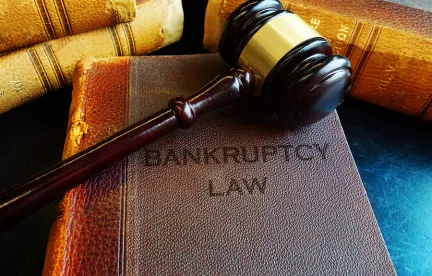On May 20, 2019, the United States Supreme Court ruled that a debtor-licensor’s ‘rejection’ of a trademark license agreement under section 365 of the Bankruptcy Code does not terminate the licensee’s rights to continue to use the trademark. The decision, issued in Mission Product Holdings, Inc. v. Tempnology, LLC, resolved a split among the Circuits, but may spawn additional issues regarding non-debtor contractual rights in bankruptcy.
The Court Tells Debtors, “No Take Backs”
In a previous post, we reported on the First Circuit’s ruling and the Supreme Court’s subsequent decision to hear the case. As we noted, the First Circuit’s ruling that non-debtor licensees do not retain any rights under a trademark license rejected by a debtor licensor in its bankruptcy relied primarily on the rationale that section 365 of the Bankruptcy Code allows a debtor to reject burdensome contracts to eliminate the related expenses and obligations.
The Supreme Court disagreed. And in an 8-1 opinion, authored by Justice Kagen, the Court read the plain language of section 365(g) that “rejection of an executory contract or unexpired lease of the debtor constitutes a breach of such contract or lease” to mean that “rejection breaches a contract but does not rescind it[,]” and, therefore, “all the rights that would ordinarily survive a contract breach, including those conveyed here [i.e. the right to continue to use a trademark post-rejection,] remain in place.” In other words, a debtor’s rejection of a contract constitutes a breach of that agreement; it does not act to rescind the rights the debtor originally had transferred to the counterparty.
To make its point, the Court used a hypothetical of a lease for a photocopier between a dealer and a law firm where the dealer is required under the agreement to service the machine every month. The dealer files for bankruptcy and rejects the lease. The dealer, therefore, is no longer required to service the copier. The law firm, however, is not required to return, or surrender, the copier back to the dealer. Rather, “the law firm has an option about how to respond—continue the contract or walk away[,]” which means, “assuming the law firm wants to keep using the copier, the dealer cannot take it back.” As the Court says, “A rejection does not terminate the contract. When it occurs, the debtor and counterparty do not go back to their precontract positions. Instead, the counterparty retains the rights it has received under the agreement. As after a breach, so too after a rejection, those rights survive.”
The Court concluded that the same is true for trademark license agreements. If a debtor rejects (i.e. breaches) a license agreement, “the debtor can stop performing its remaining obligations under the agreement. But the debtor cannot rescind the license already conveyed. So the licensee can continue to do whatever the license authorizes.” The Court states that, “[i]n preserving those rights, Section 365 reflects a general bankruptcy rule: The estate cannot possess anything more than the debtor itself did outside of bankruptcy.”
The Court addressed the First Circuit’s concern that “unless rejection of a trademark licensing agreement terminates the licensee’s rights to use the mark, the debtor will have to choose between expending scarce resources on quality control and risking the loss of a valuable asset[,]” and the belief that either choice “would impede a debtor’s ability to reorganize, thus undermining a fundamental purpose of the Code.” Recognizing that the “Code of course aims to make reorganizations possible[,]” the Court noted that “it does not permit anything and everything that might advance that goal.” While section 365 allows a debtor to reject its contractual obligations, it “does not grant the debtor an exemption from all the burdens that generally applicable law—whether involving contracts or trademarks—impose on property owners.” Section 365 does not “relieve the debtor of the need, against the backdrop of that law, to make economic decisions about preserving the estate’s value—such as whether to invest the resources needed to maintain a trademark.” In other words, a debtor cannot have its cake and eat it too.
Potential Impact of Decision: More Fights and Longer Agreements?
The decision is a victory for trademark licensees, who are now permitted to continue to use trademarks in accordance with applicable nonbankruptcy law after a debtor rejects a license agreement. Conversely, the decision may be harmful to licensor-debtors who do not have the means to avoid a “naked license” and who would otherwise have sought to monetize the trademark postrejection.
The decision, however, may have repercussions beyond trademarks. Although the Court framed the issue before it to be “the meaning of [sections 365(a) and (g)] in the context of a trademark licensing agreement[,]” the ultimate holding is considerably broader and addresses the effect of a debtor’s rejection of all kinds of executory contracts.
Justice Sotomayor, in her concurring opinion, seems to recognize the breadth of the Court’s holding, warning that “the Court does not decide that every trademark licensee has the unfettered right to continue using licensed marks postrejection.” Rather, “the baseline inquiry remains whether the licensee’s rights would survive a breach under applicable nonbankruptcy law.” Consequently, a question remains whether parties can predetermine the outcome of what rights may survive rejection based on the specific terms in an agreement. Moreover, a more immediate impact of this decision may be its use by counterparties to assert a retention of certain rights or other assets under an agreement postrejection and, relatedly, an increase in litigation over the turnover and surrender of such assets.
This decision also may impact the treatment in bankruptcy of other types of intellectual property, such as patents and copyrights. Section 365(n) establishes special rules for the postrejection treatment of intellectual property licenses. Trademarks are, by definition, omitted from this particular section of the Bankruptcy Code. Under section 365(n) the licensee of a rejected intellectual property license has the option to treat the license as terminated, or can retain its rights under the rejected license but must continue to make all royalty payments and waive any right of set off under the license. Undoubtedly, parties will test the differences between the rules governing rejected trademark licenses and licenses of other types of intellectual property.




 />i
/>i


